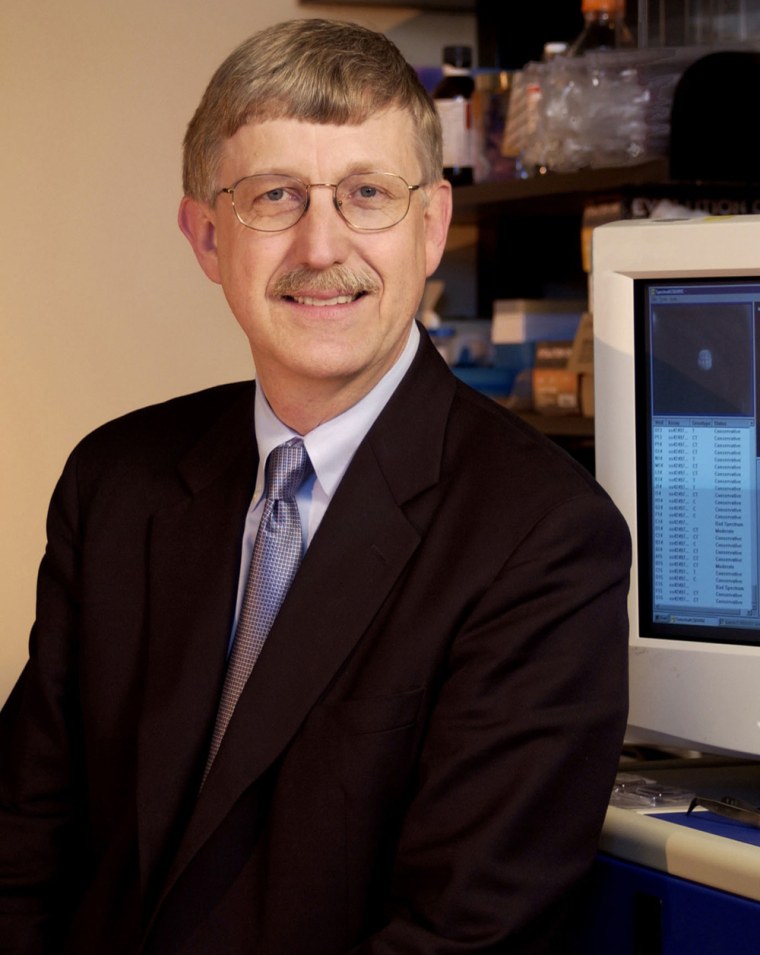The government is losing its gene guru: Dr. Francis Collins, who helped lead the breakthrough unraveling of the human genetic code — and found common ground between the belief in God and science — is resigning.
Collins, arguably the nation’s most influential geneticist, announced Wednesday that he will leave the National Institutes of Health this summer, to write a book and explore other opportunities.
The folksy geneticist helped translate the complexities of DNA into everyday vernacular. Collins led the Human Genome Project that, along with a competing private company, mapped the genetic code — or “the book of human life,” as he famously called it.
“It is humbling for me, and awe-inspiring, to realize that we have caught the first glimpse of our own instruction book, previously known only to God,” he said at a 2000 White House ceremony marking release of the genome’s first draft.
Collins also recognized early the social ramifications of his own research and became a leading advocate for genetic privacy, pushing for a federal genetic-discrimination ban that President Bush signed into law last week.
Collins may be better known to laymen for his 2007 best-selling book, “The Language of God: A Scientist Presents Evidence for Belief,” than for his decades of hunting — and discovering — genes that explain who gets cystic fibrosis, diabetes and other illnesses. Last year, he was awarded the Presidential Medal of Freedom, the highest civilian award, for expanding understanding of DNA.
Stepping down after 15 years as the NIH’s chief of genome research was “a terribly difficult decision,” Collins said Wednesday. “It’s been a marvelous ride.”
Collins, 58, insisted nothing specifically sparked his decision to leave — no outside job offer or disgruntlement beyond ordinary concern about tight research budgets.
“I think I may have another career in me, I just don’t know what it is,” he told reporters.
But Collins said he plans to write another book, about the coming era of personalized medicine, that could pose more of a conflict of interest for a government employee than his last, more personal one. He said the new book would, among other things, lay out concerns about the booming direct-to-consumer marketing of genetic tests.
When asked, Collins left open the possibility of becoming involved in the presidential campaign — he didn’t say for which side — or in private industry, which has profited from taxpayer-funded genetic discoveries.
“Science history may remember him more for changing how science is done,” said Kathy Hudson of the Genetics and Public Policy Center at Johns Hopkins University, citing Collins’ insistence that genome data be freely shared to scientists worldwide to spur new discoveries.
“Our nation was very fortunate to have a science leader who so skillfully combines both exceptional political acumen and great moral integrity,” she said.
